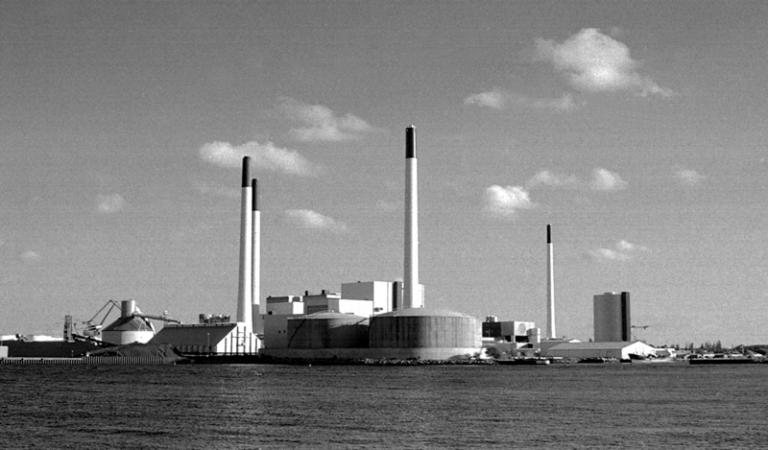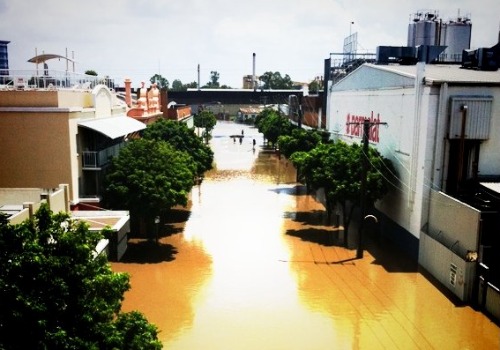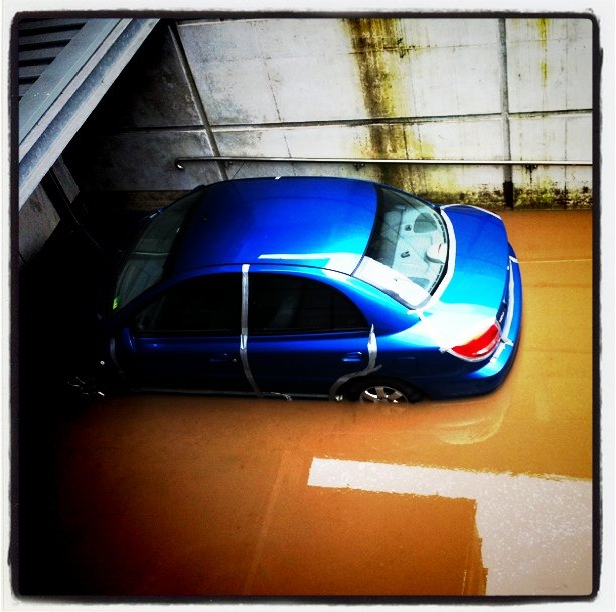 Photo: Erik VelandThe city of Brisbane thought this would never happen. After the devastating floods of 1974, engineers built a massive system of dams to hold back future deluges. But this year, unusually warm sea surface temperatures — the kind of temperatures that will become the new normal as the Earth warms — revved up an unusually strong weather phenomenon known as La Nina, leading to a volume of water far beyond what anyone had projected.
Photo: Erik VelandThe city of Brisbane thought this would never happen. After the devastating floods of 1974, engineers built a massive system of dams to hold back future deluges. But this year, unusually warm sea surface temperatures — the kind of temperatures that will become the new normal as the Earth warms — revved up an unusually strong weather phenomenon known as La Nina, leading to a volume of water far beyond what anyone had projected.
[Related: read the remarkable account written by a designer and new urbanist on the reasons that Brisbane failed to cope with the flood.]
The dams made a difference — flood waters in downtown Brisbane, a city of 2 million, peaked below their record height of 1974. But the waters still managed to wipe out many apartments and suburbs, leading to 25 deaths across the state of Queensland and leaving thousands homeless for what could be months.
Remarkably, even though power went out, many residents managed to use battery-powered laptops, cell phones, and spotty 3G coverage to post images of the muddy brown devastation swirling about them.
Here we present a selection of images from the Flood of 2011. If you’re moved to donate to the flood appeal, do it!
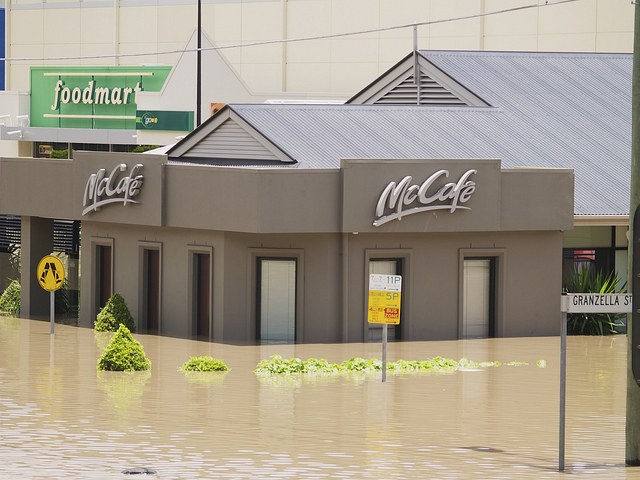 Photo: Erik Veland
Photo: Erik Veland
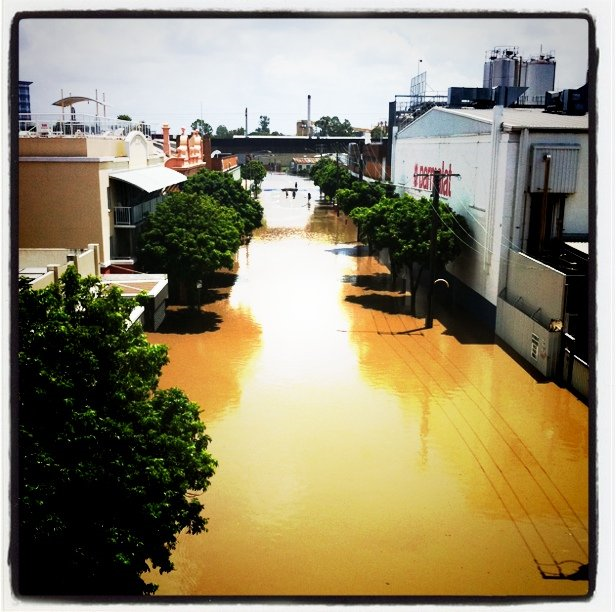 Photo: Erik Veland
Photo: Erik Veland
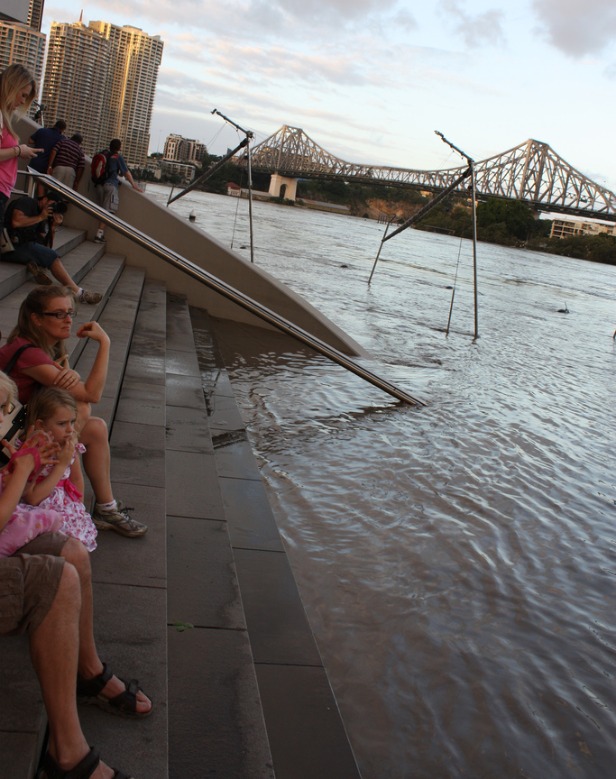 Brisbanites at a landing abutting the Brisbane River.Photo: Jorke Odolphi
Brisbanites at a landing abutting the Brisbane River.Photo: Jorke Odolphi
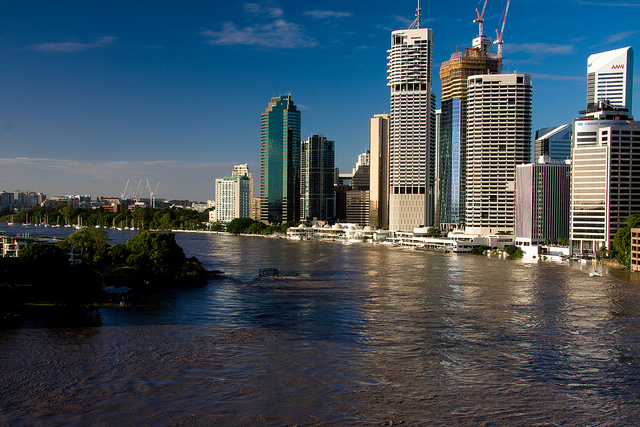 Brisbane river absorbing the boardwalk and high rises on both its banks.Photo: Benicio Murray
Brisbane river absorbing the boardwalk and high rises on both its banks.Photo: Benicio Murray
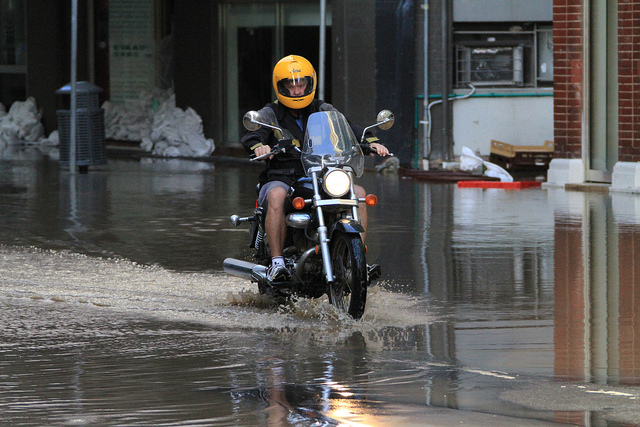 Photo: Jono Haysom
Photo: Jono Haysom
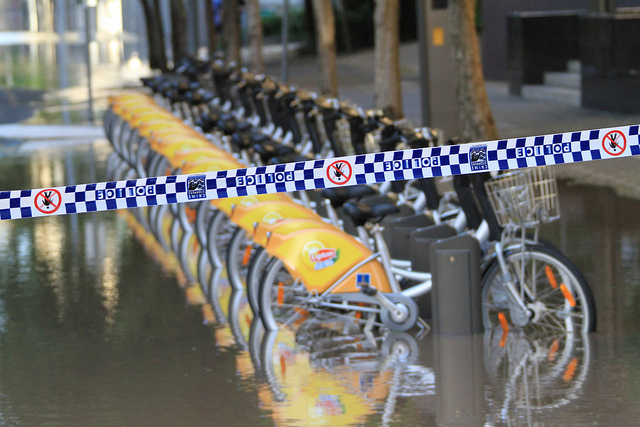 Bikes from Brisbane’s year-old bike-sharing program.Photo: Jono Haysom
Bikes from Brisbane’s year-old bike-sharing program.Photo: Jono Haysom
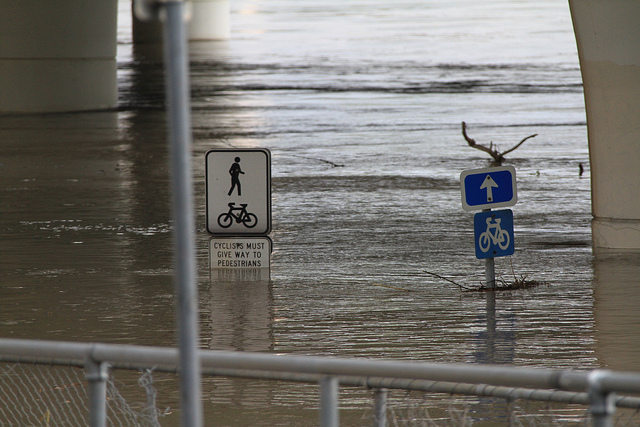 Photo: Jono Haysom
Photo: Jono Haysom
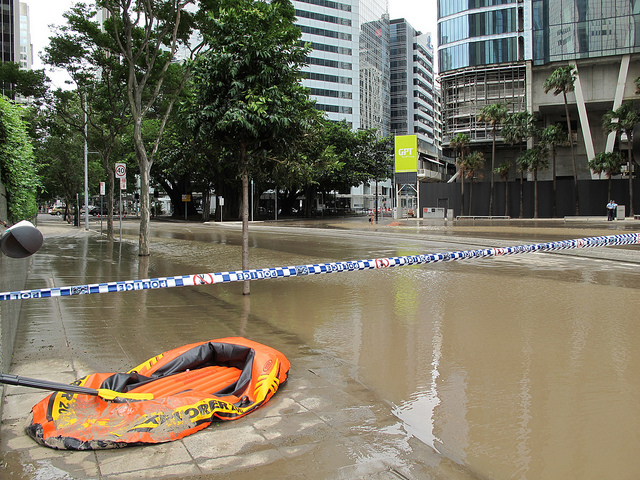 Photo: NZRico
Photo: NZRico
